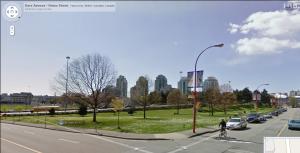This year for Black History Month, I have decided to do a bit of research into black history in my home and native land, Canada. Since there are 4 Mondays in February, I am going to focus on 4 different regions of the country. Last week I looked at British Columbia. This week, I am focusing on the prairie provinces: Alberta, Saskatchewan and Manitoba.
Anyone who has been to the prairie provinces knows that they are a place unlike any other in the world. Canada’s early history is inextricable from the frontier and mass settlement across its middle territory. Canada’s present, certainly, relies heavily on its ability to produce abundant agriculture including grains, vegetables, soy products, corn, and cattle. Worn almost completely flat by glacial retreat, the prairie provinces are rich in soil, but sparsely populated. Even casual students of Canadian history know that none of this development would have been possible without the federal government’s policy of actively courting immigrants to settle on nearly free land.
Once again, our casual history of the prairie provinces overlooks the contribution and longevity of the black population.
Perhaps somewhat unsurprisingly, black history in the prairie provinces seems to be sparked by events in the United States. When the state of Oklahoma was created in 1907, strong segregation laws were passed that marginalized black Oklahomans. This act, coupled with the Canadian government’s policy of trying to attract immigrants from the United States to the fertile and largely uncultivated prairies, inspired black Oklahomans to migrate north and settle in Canada. Between 1907 and 1911, more than 1000 African-American settlers moved into Alberta and Saskatchewan.
Of course, no good thing goes unpunished. Frank Oliver, federal minister of the interior, passed the Immigration Act in 1911, granting the government powers to restrict immigration to certain ethnicities. This policy goes a long way to explain the ethnic makeup of Canada – ethnicities can be traced like tree-rings to “date” when families probably arrived in Canada. As was the case everywhere, black immigrants were not welcomed with open arms, many forced to pay something akin to the Chinese “head tax”. The Immigration Act would essentially choke off black settlement in the prairie provinces for the next 60 years until Caribbean countries were declared “desirable”, and a large wave of Trinidadian, Guyanese, Jamaican, and other West Indian immigrants entered Canada.
It is interesting to note that black families who settled in Alberta were able to maintain their homesteads at a rate significantly higher than average. One potential explanation for this phenomenon is that families that were prepared to endure the hardships involved in getting there in the first place were both more resilient and more stubborn than people whose passage was easier. However, the small number of black settlers meant that the black presence in the prairies was then, and continues to be, small. Calgary is a notable exception, with a black population of 2.2% (slightly below the national average, but much higher than in most other Canadian cities).
A friend of mine pointed me toward a black pioneer of a different stripe – Dr. Alfred Shadd. Born in Raleigh, Ontario in 1870, Shadd was one of those multi-talented and dedicated individuals that kind of makes you feel bad every time you spend a Friday on the couch eating Cheetos. Doctor, teacher, farmer, editor, and politician, all in one amazing black package. It is important to remember that after the outset of Confederation, the prairies were much like the Wild West – a largely untamed area that was far removed from a centralized government and many steps behind in the level of technology that was enjoyed by the major cities in the east. As a result, it was possible for men like Shadd to achieve a greater level of success out of sheer necessity.
This same friend knew about Shadd because an ancestor of hers ran against him in Kinitsino in Saskatchewan’s first federal election. A strong supporter of decentralized government and greater chez nous provincial control, Shadd ran as a conservative. He lost the election by fewer than 60 votes (a result my friend attributes at least in part to a campaign by racists to ensure that a black man didn’t hold office), but still led a remarkable life. It is interesting to note that Shadd and the man who defeated him (one Thomas Sanderson) were actually great friends and remained so after the election.
Anyone in the area of Edmonton who cares to do so should visit the Shiloh Baptist Church Cemetery, one of the few established historical burial places for black settlers in early Canada. There is a similar cemetery in Chatham, Ontario that I have visited myself (more about that next week), although the Shiloh site is not as rigorously maintained. Sadly, because black history was not (and still is not by many) considered worthy of preservation, it has declined greatly and is more totemic than informative. However, it remains an indelible link to the real contributions that black Canadians made to the foundation of Canada.
Like this article? Follow me on Twitter!



